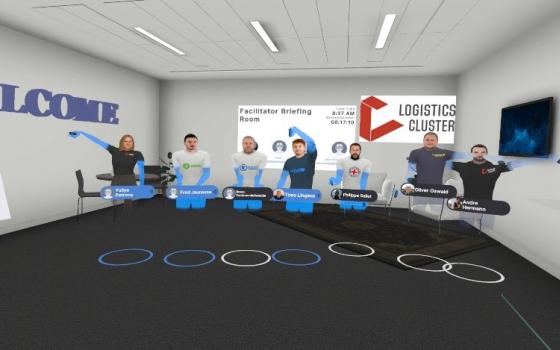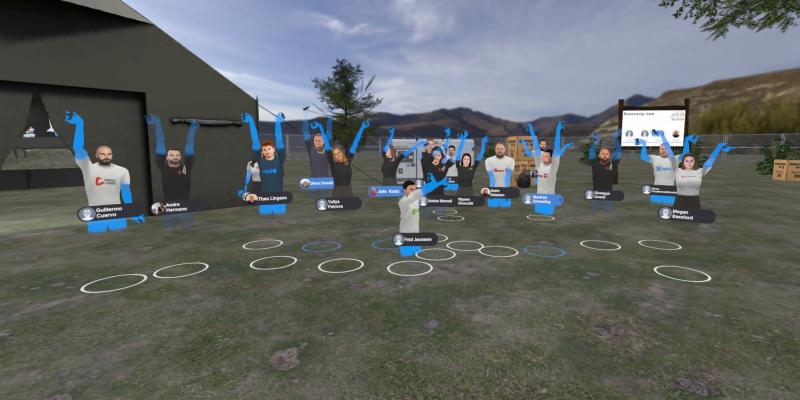
Humans of VR: Olivier Pierre
October 19, 2020
The power of VR for adult learning
April 29, 2021
The First Emergency Logistics Full-Scale Simulation Training
The Global Logistics Cluster made history on 7 March, 2021 for the first time 28 people gathered in a virtual reality training simulation from the comfort of their own homes in countries spread across 11 countries, from Thailand to Panama, Lebanon, Sierra Leone and many in between.
COVID-19 has meant that all face to face Logistics Cluster trainings, including the original large-scale, simulation-based Logistics Response Team training, have been on hold since February 2020. The Global Logistics Cluster was determined to find another solution and began exploring how to adapt to these new circumstances. The training team began utilizing more traditional blended e-learning options, however, these methods cannot prepare people for the first days of an emergency the same way as simulations can, so a solution had to be found.
The Global Logistics Cluster set out on a new frontier of learning, working closely with the team at the International Training Centre of the International Labour Organisation (ITCILO) to create an e-simulation that is redefining how to prepare humanitarians for emergencies.
“Nothing normally beats the excitement of an LRT delivered in person,” says Andre Hermann, Global Logistics Cluster Training Lead. “We knew that in order to keep building these skills in the humanitarian community we needed to work quickly to develop a virtual world that would resemble that environment and a real life emergency environment, including a dusty basecamp where a generator hums all day long and the participants can meet face to face (via VR technology) with a variety of stakeholders in a dim tent.”

Through the training, participants navigate their way through a full simulation that represents the early, non-stop days of a sudden onset emergency, including long days and short nights, to meet the ever-increasing deliverables.
“The Global Logistic Cluster team has been an early innovation adopter of running simulations in immersive VR environments. Through this project they delivered an important building block to re-think and enrich hybrid learning events in the humanitarian sector”, says Tom Wambeke, Chief of Learning Innovation, ITC-ILO.
Early feedback from the training has been extremely positive, with participants reported learning outcomes similar to a traditional face to face LRT.

It was a great experience to be a facilitator in the very first Logistics Cluster e-LRT! It was amazing to see how participants really immersed themselves in the simulation – it felt like we were in the basecamp together! I think it is amazing that even when we cannot be together physically the Logistics Cluster has found a way to bring partners together – it’s a great opportunity to engage with even more partners around the world!” says Megan Bassford, who attended as a facilitator on behalf of Save the Children
“This was the first time I ever felt so close with peers who were so far away. This training proved that distance is never a hindrance when a team is committed to performing its duties to alleviate human suffering. I strongly believe that online training is as effective as traditional training in delivering the learning objectives”, reported Nimisha Gopakumar, a participant from the International Organization for Migration.
Opportunities to use VR moving forward are endless and the Global Logistics Cluster has plans to further develop not only this training but to further utilize this technology to develop new trainings altogether.
Check out the Logistics Cluster Training webpage and register for the session on Friday, 23 April 2021 at the HNPW where we will be discussing the development and implementation of the e-LRT training. You can find here the session abstract and registration .
